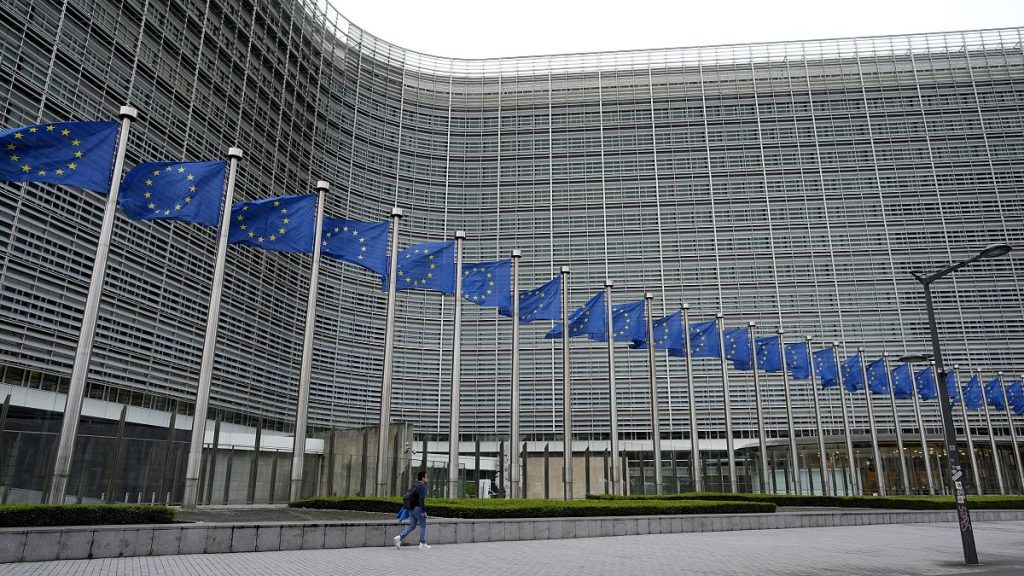Iceland’s evolving stance on EU membership: A journey from ambivalence to potential accession
Iceland, an island nation with a history of maintaining a distance from the European Union, is now experiencing a shift in public and political sentiment towards potential membership. For decades, the Icelandic populace remained largely divided into three camps: pro-EU, anti-EU, and undecided. However, a confluence of factors, including the 2008 financial crisis, the United Kingdom’s withdrawal from the EU (Brexit), and a series of domestic challenges, has gradually nudged the country closer to considering the benefits of joining the bloc. This evolving perspective culminated in the announcement by Iceland’s new government, led by Prime Minister Kristrún Frostadóttir, to hold a referendum on EU accession by 2027. This decision reflects a growing recognition within Iceland that engaging with the EU might offer solutions to pressing economic and political concerns.
The 2008 financial crisis served as a stark reminder of Iceland’s vulnerability outside the EU’s protective economic framework. The crisis exposed weaknesses in the Icelandic financial system and led to a severe recession. Observing the relative stability afforded to EU member states during the crisis, many Icelanders began to question the long-term viability of remaining outside the bloc. Brexit, too, played a significant role in shaping Icelandic perceptions. Witnessing the economic and political complexities faced by the UK after leaving the EU, Icelanders started to appreciate the potential advantages of integrated markets and shared regulations provided by EU membership. Furthermore, internal issues, such as concerns about economic diversification, resource management, and access to international markets, have fueled the debate about the potential benefits of closer ties with the EU.
Public opinion polls conducted in recent years indicate a notable increase in support for EU membership in Iceland. A June 2024 survey by Maskína revealed that over 54% of respondents favored joining the EU, with a majority expressing the belief that household finances would improve within the bloc. This represents a substantial change in public sentiment, reflecting a growing awareness of the potential economic advantages associated with EU membership. The poll also highlights the importance of democratic decision-making in this process, as a significant majority (74.2%) of respondents stressed the need for a referendum to settle the issue.
The new Icelandic government, formed after snap elections in November 2024, has placed the EU referendum at the forefront of its agenda. The incoming administration, under the leadership of Prime Minister Kristrún Frostadóttir of the Social Democratic Alliance, is committed to addressing key economic challenges, including inflation and high interest rates. The government’s plan to form a panel of experts to analyze the implications of adopting the euro further underscores its commitment to thoroughly evaluate the potential consequences of closer EU integration. This panel will assess the costs and benefits of transitioning from the Icelandic króna to the euro, considering factors such as monetary policy flexibility, exchange rate stability, and the impact on trade and investment.
The formation of this new government marks a historic moment for Iceland, as it is the first time all the leaders of the governing parties are women. Prime Minister Frostadóttir, at 36, becomes Iceland’s youngest ever Prime Minister, signifying a generational shift in Icelandic politics. The new administration, a coalition comprised of the Social Democratic Alliance, the Liberal Reform Party, and the centrist People’s Party, faces the task of steering the country through a period of economic uncertainty. The government has pledged to prioritize economic stabilization, lower interest rates, and foster private sector growth. Its commitment to reducing government ministries aims to streamline administration and cut costs, reflecting a focus on fiscal responsibility.
The upcoming referendum on EU membership promises to be a pivotal moment in Iceland’s history. The decision to join or remain outside the EU will have profound implications for the country’s future economic and political trajectory. The government’s commitment to holding a referendum underscores its respect for the democratic process and its recognition of the significance of this decision for the Icelandic people. As Iceland grapples with economic challenges and navigates a changing global landscape, the debate surrounding EU membership will undoubtedly continue to shape the country’s political discourse in the years to come. The referendum, scheduled for no later than 2027, will provide Icelanders with the opportunity to express their views on this crucial issue and determine the nation’s future relationship with the European Union.














